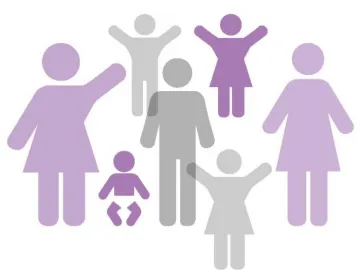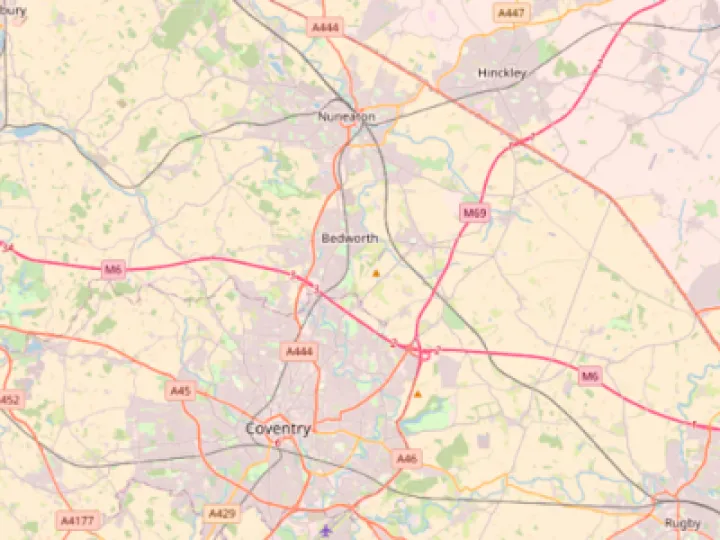Safeguarding
Safeguarding Children, Young People and Vulnerable Adults Policy for Kidderminster and Stourport Circuit

This policy was agreed at the Circuit Meeting held on 24/09/19.
It will be reviewed in September 2024.
1. The Policy
The Methodist Church, along with the whole Christian community, believes each person has a value and dignity which comes directly from God's creation of humans in God's own image and likeness. Christians see this as fulfilled by God's re-creation of us in Christ. Among other things, this implies a duty to value all people as bearing the image of God and therefore to protect them from harm.
The Kidderminster and Stourport Circuit is committed to the safeguarding and protection of all children, young people and adults and affirms that the needs of children or of people when they are vulnerable and at risk are paramount.
The Kidderminster and Stourport Circuit recognises that it has a particular care for all who are vulnerable whether by disabilities or by reduction in capacities or by their situation. It is recognised that this increased vulnerability may be temporary or permanent and may be visible or invisible, but that it does not diminish our humanity and seeks to affirm the gifts and graces of all God's people. This policy addresses the safeguarding of children, young people and vulnerable adults. It is intended to be a dynamic policy. It is intended to support the Church in being a safe, supportive and caring community for children, young people, vulnerable adults, for survivors of abuse, for communities and for those affected by abuse.
The Kidderminster and Stourport Circuit fully agrees with the statement reiterated in Creating Safer Space 2007:
As the people of the Methodist Church we are concerned with the wholeness of each individual within God's purpose for everyone. We seek to safeguard all members of the church community of all ages.
The Kidderminster and Stourport Circuit recognises the serious issue of the abuse of children and vulnerable adults and recognises that this may take the form of physical, emotional, sexual, financial, spiritual, discriminatory, domestic or institutional abuse or neglect, abuse using social media or human trafficking (slavery). It acknowledges the effects these may have on people and their development, including spiritual and religious development. It accepts its responsibility for ensuring that all people are safe in its care and that their dignity and right to be heard is maintained. It accepts its responsibility to support, listen to and work for healing with survivors, offenders, communities and those who care about them. It takes seriously the issues of promotion of welfare so that each of us can reach our full potential in God's grace.
The Kidderminster and Stourport Circuit commits itself to:
1. RESPOND without delay to any allegation or cause for concern that a child or vulnerable adult may have been harmed, whether in the Church or in another context. It commits itself to challenge the abuse of power of anyone in a position of trust. It commits itself to providing informed pastoral care to those in need, including the supervision of those who have committed criminal offences.
2. Ensure the IMPLEMENTATION of Connexional Safeguarding Policy; government legislation and guidance and safe practice in the circuit and in the churches.
3. The PROVISION of support, advice and training for lay and ordained people that will ensure people are clear and confident about their roles and responsibilities in safeguarding and promoting the welfare of children and adults who may be vulnerable.
4. AFFIRMS and gives thanks for the work of those who are workers with children and vulnerable adults and acknowledges the shared responsibility of us all for safeguarding children, young people and vulnerable adults who are on our premises.
2. Purpose
The purposes of this safeguarding policy are to ensure procedures are in place and people are clear about roles and responsibilities for children and vulnerable adults in our care and using our premises. It is to be read in conjunction with the Safeguarding Policy, Procedures and Guidance for the Methodist Church (2017). The full implementation of these policies should achieve the
- Church (and all associated activities) is a safer place for everyone. Communities we serve have confidence that children and vulnerable adults are as safe as possible and that their wellbeing is enhanced in the life of the church.
- People in the church are alert to unsafe practices and are able to challenge them.
- Office holders are safely recruited, trained for their roles and are accountable for their activities.
- People who have experienced abuse are accepted, empowered and supported in maintaining control over their lives and making informed choices without coercion.
- People who abuse are held accountable to the law and their risk is managed while they are supported and challenged to address their motivations and behaviour.
3. Roles and Responsibilities
3.1. Circuit Meeting
It is the responsibility of each Circuit Meeting to appoint a Circuit Safeguarding Officer and there should be no gaps in this crucial provision. It is not appropriate for any minister to fill any gap, because of the potential conflict of roles. The role will usually be undertaken on a voluntary basis although expenses should be met.
The Kidderminster and Stourport Circuit appoints Mrs Joanna Smith as Circuit Safeguarding Officer (Adults) and as Circuit Safeguarding Officer (Children), and supports her in her roles.
The circuit meeting holds the following responsibilities which may be delegated to the Circuit Safeguarding Officer, if appropriate:
1. Support and advice to the circuit superintendent and the circuit stewards in fulfilling their roles.
2. Ensuring the safety and well-being of all children and vulnerable adults within the circuit is maintained.
3. Being the point of reference for individual Church Safeguarding Officers throughout the circuit to guide and advise them upon Methodist Church safeguarding policy requirements.
4. Liaison with the district safeguarding group(s).
5. Provision of support to the superintendent, make sure that any incidents and allegations are followed up or referred as necessary.
6. Prompt and appropriate response to safeguarding concerns raised about children, young people and vulnerable adults and those at risk or believed to be suffering harm, including immediate referral to statutory agencies where appropriate and liaison with the district safeguarding officer.
7. Recording of all safeguarding issues and retention of records.
8. Reporting (in conjunction with the superintendent and relevant minister) any concerns to the district safeguarding officer within 24 hours on the referral form (please see the Safeguarding Records: Joint Practice Guidance for the Church of England and the Methodist Church – 2015).
9. Acting on behalf of and consultant to the superintendent with regard to reports required by the district or Connexion.
10. Ensuring that safeguarding is on the Circuit Meeting agenda as a 'standing' item and present a report to each meeting about safeguarding events (noting the need for relevant confidentiality regarding specific cases).
11. Receipt of risk assessments, policy and training schedules from churches across the circuit for sharing with the circuit meeting annually.
12. Attendance at the circuit staff meeting as necessary to discuss concerns brought to their attention.
13. Liaison with the individual church safeguarding officers to make sure that they are being compliant with connexional policy, procedures and guidance.
14. Partnership work with the superintendent minister, ministers and the district safeguarding officer regarding safeguarding concerns.
15. Agreement with the superintendent minister about how and where records are stored and who should have access.
16. Meetings with the church safeguarding officers at least annually.
17. Attendance at training as necessary.
18. Attendance at district safeguarding events.
19. Membership of and active participation in district safeguarding liaison meetings as called by the district safeguarding officer.
20. Work with local ecumenical partners and their safeguarding representatives.
21. Review of the circuit safeguarding policy at least annually and provision of an updated copy to the district safeguarding officer.
22. Advice to churches where necessary on their policies.
23. Review of the safeguarding policy for each church in the circuit each year after any amendments by the churches.
24. Source of up-to-date knowledge of current policies and practice in statutory services and within the Church.
25. Organisation of and contribution to safeguarding training for all those working in voluntary and paid roles within the circuit.
26. Maintenance of a record of all people within the circuit who have received Foundation Module training, Foundation Module Refresher training together with dates of attendance
27. Ensuring that all persons receive appropriate training when working with children and vulnerable adults, hold an office of responsibility, or are in other applicable roles as defined in the Methodist Church policy.
28. Overseeing timely delivery of appropriate training, in liaison with the Church Safeguarding Officers and accredited Circuit Trainers.
29. Ensuring that all circuit churches adopt a safer recruitment policy when appointing staff, or volunteers
30. DBS verification on behalf of the circuit.
31. Retaining records of names of those at circuit level who have DBS checks.
32. Provision of reminders to Church Safeguarding Officers about the need to apply or reapply for checks in accordance with the Methodist Church policy (for updates, the period is currently every five years).
33. Assisting in setting up Monitoring and Support Groups for those engaging in ... Safeguarding Agreements and ensuring periodic reviews take place.
34. Maintenance of a directory of useful names and contact details.
Where a circuit safeguarding officer carries out the above activities, there is a requirement for supervisory oversight from the superintendent minister or nominated substitute, with signed and agreed records of meetings.
3.2. Superintendent Minister
1. Ensure all churches have appropriate and up-to-date safeguarding policies in place.
2. Support those in pastoral charge in exercising responsibility for the implementation of safeguarding policy and practice.
3. Ensure the provision of pastoral support for those involved in issues of abuse and in management of sex offenders.
4. Ensure training opportunities are in place for all workers with children, vulnerable adults, for staff of the circuit and for members of the local churches in the circuit.
5. Ensure the Circuit Meeting appoints a circuit safeguarding officer/s and that the details of each person are passed to the district office.
6. Ensure the Circuit Meeting reviews this policy annually.
7. Support the circuit safeguarding officer (Adults) and the circuit safeguarding officer (Children) in her work, providing access to resources to enable her to fulfil her functions.
Circuit stewards
Ensure agreed procedures are in place for circuit and ecumenical events that involve children or vulnerable adults.
Procedures for circuit events involving children, young people or vulnerable adults
It is essential that circuit events that involve children or vulnerable adults do not slip through the net because they are not owned by one church. Circuit events to be notified to the district safeguarding officer prior to these being agreed to ensure that all permissions, risk assessments and good practice guidelines are in place.
Responsibility for those planning and leading the event
All those involved in leading and running the event must be aware of the procedure.
The event should have been planned effectively and attention given to the following issues:
1. Risk assessment and suitability of the activity and the premises
2. The appointment of a team to take charge of the event, including safeguarding and first aid personnel (particular health or ability needs should be taken into account)
3. Numbers of children, young people or vulnerable adults involved
4. Transportation following good practice guidelines.
This information is to be sent to the district safeguarding officer for approval PRIOR to the event being agreed.
Key concepts and definitions
1. A child is anyone who has not yet reached their eighteenth birthday. The fact that a child has reached 16 years of age, is living independently or is in further education, a member of the armed forces, in hospital or in custody in the secure estate, does not change his/her status or entitlements to services or protection.
2. Vulnerable adults: Any adult aged 18 or over who, due to disability, mental function, age or illness or traumatic circumstances, may not be able to take care or protect themselves.
3. Safeguarding and protecting children or vulnerable adults from maltreatment; preventing impairment of their health and ensuring safe and effective care.
4. Adult/child protection is a part of safeguarding and promoting welfare. This refers to the activity undertaken to protect children/specific adults who are suffering or are at risk of suffering significant harm, including neglect.
5. Abuse and neglect may occur in a family, in a community or in an institution. It may be perpetrated by a person or persons known to the child or vulnerable adult or by strangers, by an adult or by a child. It may be an infliction of harm or a failure to prevent harm.
Dated 24th September, 2019
Signed Rev Susan Levitt – Chair of Circuit Meeting

